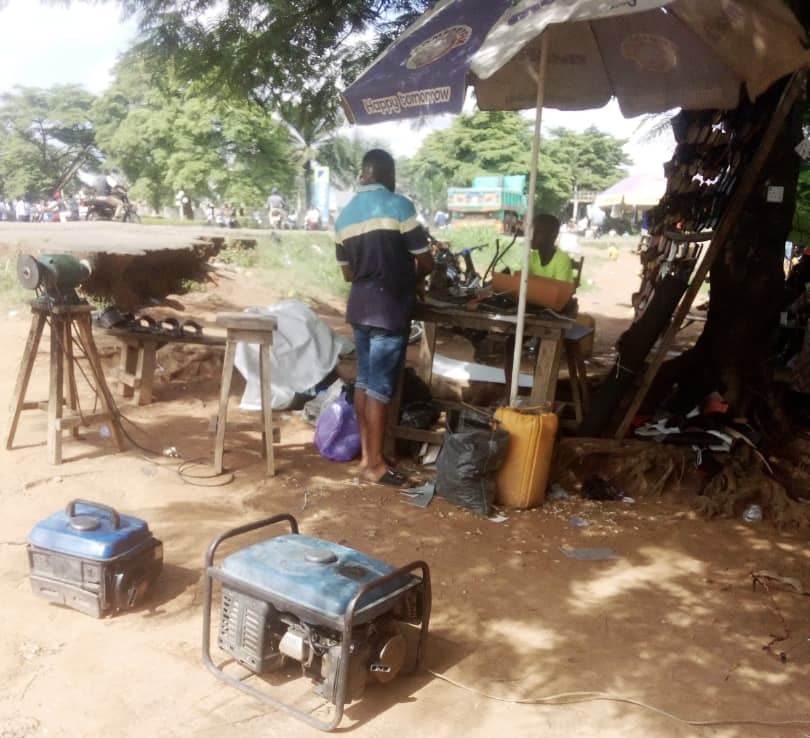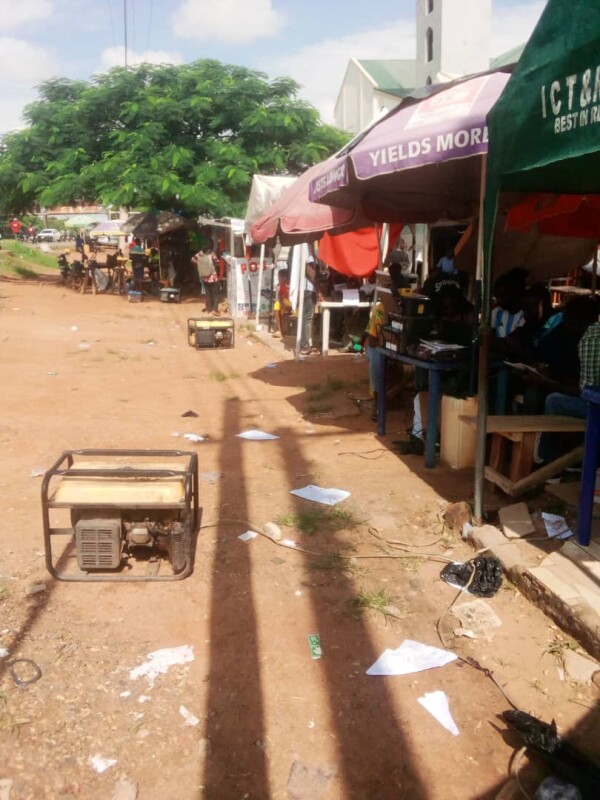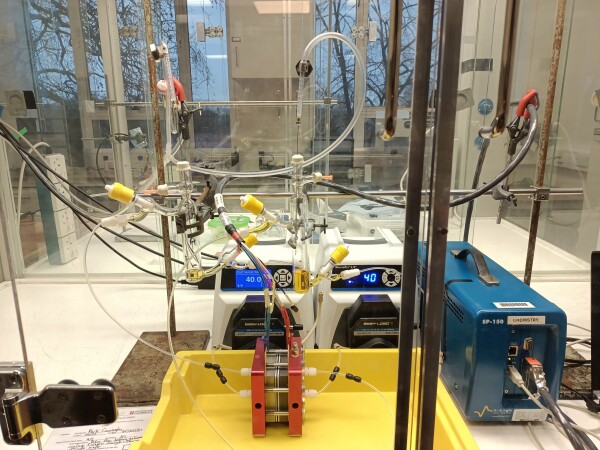Bio-Materials as Sustainable Electrolytes for Resilient Battery Systems

Power outages are common in Africa's vast cities, while many rural areas don't even have access to electricity. As of 2021, 43% of Africans, including 590 million in Sub-Saharan Africa, lacked electricity, according to the International Energy Agency. West Africa has one of the lowest electricity access rates in the world, and the transition from fossil fuels to renewables is sluggish in this region. Nigeria, Africa's most populated nation, produces barely 4,000 megawatts despite its population of over 210 million, which requires 30,000 megawatts.
 Many Nigerians rely on fossil-fuel generators for residential lighting and businesses. Thus, renewable energy (SDG 7—affordable and clean energy and SDG 13- Climate action) is essential to the nation's development. Especially given climate concerns and global net-zero targets. Health, education, business, and job growth require energy. Thus, energy access will empower urban and rural women, youth, and children to drive progress in the country.
Many Nigerians rely on fossil-fuel generators for residential lighting and businesses. Thus, renewable energy (SDG 7—affordable and clean energy and SDG 13- Climate action) is essential to the nation's development. Especially given climate concerns and global net-zero targets. Health, education, business, and job growth require energy. Thus, energy access will empower urban and rural women, youth, and children to drive progress in the country.
Rechargeable batteries are needed to deploy intermittent renewable energy sources like solar and wind. Environmental preservation and the resilience of renewable energy systems require safe and sustainable large-scale energy storage technologies.
Dr Habibat Chahul is an Associate Professor of Physical Chemistry at the Federal University of Agriculture Makurdi in Nigeria. Dr. Chahul uses electrochemical, spectroscopic, and microscopic techniques at her institution in Nigeria to research biomaterials as eco-friendly corrosion inhibitors for metals and alloys in diverse aqueous electrolytes. Her doctoral dissertation focused on the application of purine compounds as green corrosion inhibitors for mild steel and aluminium in aqueous conditions. Dr. Chahul worked with Professor Clare Grey of the University of Cambridge's Department of Chemistry on a proposal to the ALBORADA Research Fund to investigate biomaterials as sustainable electrolytes for redox flow battery systems.
Nature's chemical storehouse for biomaterials is plants and living organisms. Quinones, polyphenols, and flavins are among the abundant natural compounds with promising possibilities as economical, nontoxic, widely available, and renewable sources of a wide range of organic chemicals for industrial uses. These molecules are ubiquitous and can be tuned to desirable designs for use in large-scale battery technologies such as redox flow batteries (RFBs). Redox flow batteries are highly suited for both stationary and long-term applications, particularly considering the worldwide push to attain net zero emissions by 2050. They are easily scaled to the sizes required to have an influence on the grid. RFBs are highly suited for stationary applications due to their unique ability to decouple power and energy, modular construction, flexible operations, long-life cycling, and low maintenance costs. The organic redox-flow battery (ORFB) is a promising solution for meeting global energy demand, and it has the potential to solve the drawbacks of the popular and commercialised vanadium redox-flow battery (VRFB), which are restricted availability, high vanadium electrolyte costs, and toxicity. ORFB has the potential to be a more affordable and viable battery technology for use in developing countries.
 D. Chahul and Professor Grey used spectroscopic and electrochemical techniques to study two biomolecules as green electrolyte materials in RFBs. The study was expected to broaden the range of green organic compounds used in RFBs to improve their efficiency and enable realistic applications at the grid-scale level. Their findings indicate that the two bio-compounds have the potential to be employed as electrolyte materials in RFBs by leveraging their tunability through further chemical modifications for improved properties.
D. Chahul and Professor Grey used spectroscopic and electrochemical techniques to study two biomolecules as green electrolyte materials in RFBs. The study was expected to broaden the range of green organic compounds used in RFBs to improve their efficiency and enable realistic applications at the grid-scale level. Their findings indicate that the two bio-compounds have the potential to be employed as electrolyte materials in RFBs by leveraging their tunability through further chemical modifications for improved properties.
The project's findings were presented at the African Research Universities Alliance (ARUA)-Centre of Excellence in Materials, Energy, and Nanotechnology (ARUA CoE-MEN) Mini-Conference on the Theme: "ENERGY SOLUTIONS FOR AFRICA" (17 May 2023), as well as the Royal Society Commonwealth Science Conference Sub-Saharan Africa. Follow-up Meeting on the Theme of Energy Transition and the Circular Economy in Accra, Ghana (March 14–16, 2022)
Two master's students are currently researching electrolyte materials for use in flow batteries in Dr Chahul's group in Nigeria, even though an eight-month nationwide strike at public universities in Nigeria has hindered progress. Both staff and students conducting electrochemistry research in Nigeria in areas like batteries, corrosion, and other electrochemical energy materials and sensors could use the tools (a PalmSens PS4.F2.05 potentiostat/galvanostat/impedance analyzer, a battery cycler, and peristaltic pumps) purchased through the Cambridge-Africa ALBORADA Research Fund.
Future work on RFBs will include detailed chemical and mechanistic research to improve the properties of bio-sourced organic compounds as electrolyte materials. Green inorganic compounds as electrolyte materials in flow batteries would also be interesting to investigate.
By Habibat Chahul

